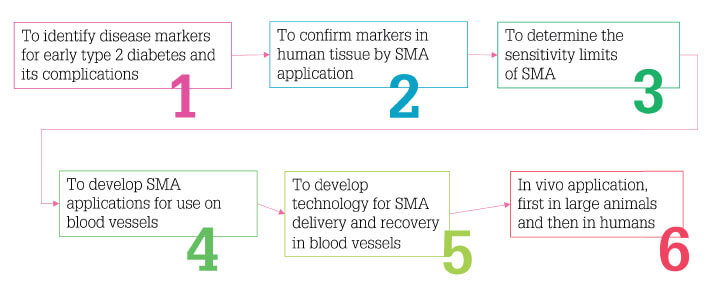Diabetes – a disease so common that almost everyone knows someone who has it, but so comprehensive that few members of the public are fully aware of the risks it can pose to patients. For example, the disease can cause severe damage to blood vessels throughout the body – and that damage begins early on. The silver lining? A method of detecting the blood vessel damage could also offer a route to earlier diagnosis and treatment of diabetes (1).
“We wanted to exploit our recent discovery that a novel chemical tool, the polymer styrene maleic acid (SMA), can ‘biopsy’ human cells, extracting proteins without causing cell death,” explains Andrew Smith, a researcher from the School of Biomedical Sciences at the University of Leeds. “This project will build on our previous findings with SMA by using it as a tool to investigate diabetic vascular disease development and identify markers linked to specific aspects of this disease.”
SMA isolates proteins from cell membranes in tiny, disc-like nanoparticles due to its structure, which cuts through the membrane to release the disc and maintain its stability. “We found that we were able to identify proteins from membranes and elsewhere in the cells in our collected material,” says Smith.
The research group now plans to exploit their finding that SMA can nondestructively sample proteins from cells and intact tissues. To that end, they have a series of six goals. But what happens if proteins that signal disease progression are identified? “Detecting a biomarker of change in cells due to the pre-diabetes state will give solid evidence of the need for intervention,” explains Smith. “Early diagnosis of type 2 diabetes is linked to significant risk reduction, with scope for further reduction if treatments can be directed by evidence obtained from the site of disease damage.” To that end, the researchers will not only identify biomarkers of disease development in patients with established diabetes, but also search for markers of higher risk of disease complications.

References
- University of Leeds, “University of Leeds researchers awarded Heart Research UK grant to spot diabetes early” (2019). Accessed May 23, 2019.




